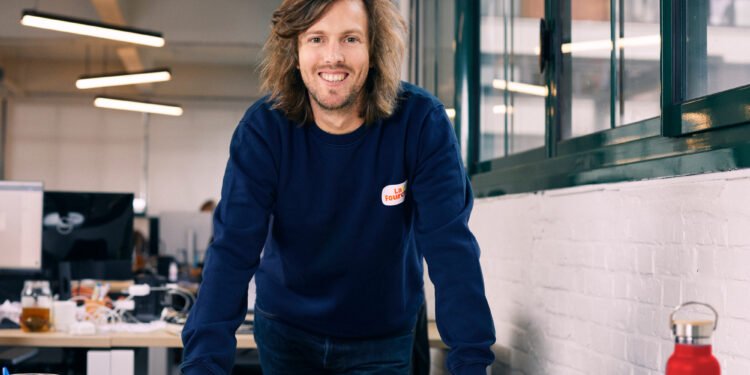La Fourche is just seven years old but it has been quite a rollercoaster for the French startup. During this time, the online grocery retailer has gone through a global pandemic, followed by the rise of venture-backed quick-commerce startups that promised grocery deliveries in less than 15 minutes, followed by the implosion of that vertical.
When you talk with La Fourche’s co-founder and CEO Nathan Labat, he doesn’t spend too much time dwelling on Flink, Getir, Gopuff, Gorillas and all the q-commerce startups that swarmed over Europe around 2021. That’s because La Fourche’s business model could be considered the perfect opposite of all that. Although the startup is also VC-backed, it has taken a different path.
Most of La Fourche’s inventory consists of healthy and organic products with a long shelf life. Think olive oil, diapers, cereals, shampoo and coffee beans.
“I break it down into three buying patterns. You have one buying pattern, which is the quick refill — ‘what am I going to eat tonight?’ — it leads to very low average order values: €20 to €30,” Labat explained.
“Then, you have a weekly pattern, where you plan more, you go and buy fruit and vegetables, fresh produce, etc.,” he went on. “Then you have the stock up opportunity, which is really about filling up your cupboards for a month, a month and a half.
“These are three very distinct patterns. And we’re really clearly identified as a stock-up company.”
The company only offers a handful of options for each product category so that it has broad coverage of its users’ needs without overwhelming them with choice. It also offers its own brand products.
In a way, La Fourche has been trying to differentiate its offering from what you can get from traditional supermarket chains and their delivery services.
“There’s a lack of consumer confidence,” Labat argued — calling out “the overwhelming catalog with awful stuff, everything you already know as a consumer, which led to the rise of Yuka”, a food health quality app.
Headed for €100 million in revenue
With La Fourche, customers pay a yearly membership fee to sign up — it currently costs around €60 per year ($65.50 at current exchange rates). After that, customers don’t pay a delivery fee for orders above a certain threshold.
On this front, Labat names Costco and Thrive Market as inspirations. (But Amazon Prime is perhaps the most familiar user of the delivery membership model). Subscriptions create brand loyalty, increase retention rates and could even improve the average order value.
Instead of shelling out for a subscription to get diapers, another to get fresh coffee beans and another one for personal care products, customers can get all these products from La Fourche.
“Subscription models have become increasingly common,” Labat noted. “You get the impression that on food, it’s interesting because you can offer something like ‘one subscription to rule them all.’”

La Fourche’s metrics tend to back those assumptions. The company currently has 120,000 members. On average, they order around €120 worth of products once per month or every 45 days.
Overall, La Fourche says it’s on track to generate €100 million in gross merchandise volume in 2025.
The startup’s unit economics are improving as well. “We went from -15% in EBITDA margin to -9% last year, and we’re on track for -2% this year,” he said, adding: “We aim to achieve our first profitable quarter by the end of 2025.”
Part of the reason why La Fourche’s business model seems to work is that it scales well. The company doesn’t have to increase marketing spending as it grows because most of La Fourche’s customers come from referrals. The startup says it spends around 5% of its revenue on marketing.
The other big reason is that La Fourche only has one warehouse that covers the entire country. It is now an automated warehouse — built using AutoStore’s technology. “We have a relatively asset-light model with a high recurrence rate,” Labat summed up.
As an added benefit, 46% of La Fourche’s customers reside in the countryside. This isn’t a startup that only serves customers living in big cities as they already have plenty of options for grocery shopping.
Up next, La Fourche wants to grow its customer base in Germany — where it recently launched its online organic supermarket, under the brand name Ackerherz. And if it can demonstrate the model is replicable across different countries there will likely be further geographic expansions down the road.










